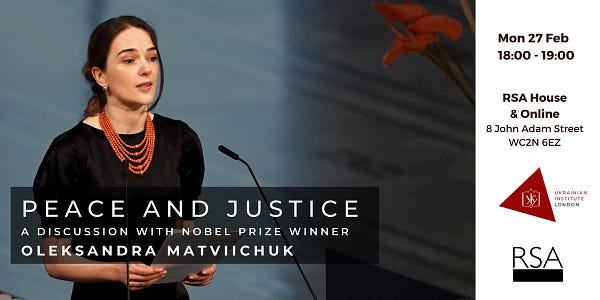Feb 26- Sunday Stories
Day 367: OnTheGround Zelensky ISW Estonia drones Lukashenko Georgia Lithuania RUbanks IRGC G20 Golod Atlantic Council Weiss Scherba UAInstitute OCCRP RUcashItaly Borovyk
Catching up…
EA Worldview’s Ukraine Up-date- hop over to Scott’s amazing hourly Ukraine up-date page. I’ll fill in with some bits and bobs.

Stories we’re following…
Explosions were reported yesterday at a Russian ammunition depot in Mariupol, according to Petro Andriushchenko, an adviser to the exiled city’s mayor. “The sounds of explosions along the line of Yalta village / Yuryivka village (location of a large concentration of occupiers) in Mariupol district are reported. We verify the reports. Air raid alert was announced in Ukraine, but occupiers are struck. It’s a good trend.”





Zelensky: Three more European countries ready to train Ukrainians on F-16 jets. Three more European countries, besides Poland, have expressed their readiness to start training Ukrainian pilots on F-16 fighter jets, President Volodymyr Zelensky said, cited by Ukrainska Pravda.
The Insider: The Office of the Prosecutor-General of Ukraine, through its Telegram channel, has announced that a pre-trial investigation is ongoing following identification by the Kyiv regional prosecutor's office of the Russian soldier responsible for the killing of a civilian and attempted murder of his son in occupied Bucha. The soldier has been notified that he is suspected of premeditated murder and cruel treatment of civilians.


UK Defense Ministry: Russia has likely run out of Iranian-made drones. Since around Feb. 15, there have been no reports of Russia using Iranian-made “one-way attack” drones to carry out strikes against Ukraine, the U.K. Defense Ministry said in its latest intelligence update.
CIA director confirms possibility China may send lethal aid to Russia. CIA Director Bill Burns confirmed that China is considering sending lethal aid to Russia in its war against Ukraine in an interview with CBS News on Feb. 25.
Ukraine’s military said Russia had doubled the number of ships on active duty in the Black Sea on Friday and predicted this could be a preparation for more missile strikes. “In the Black Sea, the fleet of warships has doubled compared to this morning – it is now eight ships,” the military command in the southern region said in a Facebook update. “Against a background of enemy aviation activity of a certain kind, this may indicate that a missile attack as well as drone strikes are in preparation,” it said.
Oligarchs reportedly close to Putin who have had bank accounts frozen or property seized after Moscow's invasion of Ukraine are pushing back against the Western sanctions — or finding ways around them.
The EU now sanctions a total of 1473 individuals and 205 entities. Those designated are subject to an asset freeze and EU citizens and companies are forbidden from making funds available to them. Natural persons are additionally subject to a travel ban.
The EU sanctioned today also Alfa-Bank, Rosbank, and Tinkoff Bank, the National Wealth Fund of the Russian Federation, and the Russian National Reinsurance Company. Potanin recently bought Rosbank & Tinkoff Bank at depressed prices.



ISW: Moscow did not comment on anniversary of its full-scale war likely due to failed objectives. The Institute for the Study of War said this is likely because it “failed to achieve any of its stated objectives and has not made significant territorial gains since July 2022.”
The Moscow Times: As the first anniversary of Russia’s invasion of Ukraine approaches, life in the capital largely goes on as usual, with most Muscovites saying that the dominant mood is one of indifference to the ongoing fighting.
“I don’t really feel that there is a war going on,” said a Muscovite in his 30s who spoke to a Moscow Times reporter in the city center earlier this week.
“One can easily adapt to any circumstances — the longer this conflict goes on, the more people accept the situation.”
Lukashenka will visit China on February 28 for a state visit, the Chinese Foreign Ministry said on February 24. "At the invitation of Chinese President Xi Jinping, President of Belarus [Alyaksandr Lukashenka] will pay a state visit to China from February 28 to March 2," spokesperson Hua Chunying said. Lukashenka is a close ally of Russian President Vladimir Putin and has backed Moscow's invasion of Ukraine. Belarus is financially and politically dependent on its neighbor.

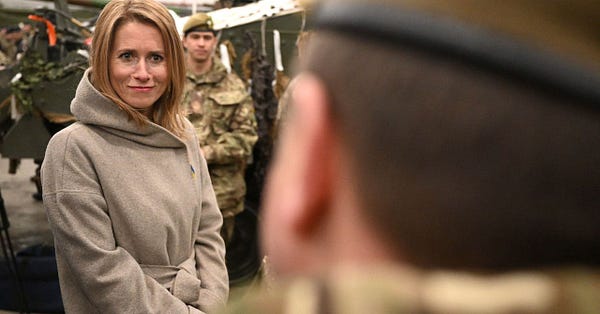
Support for Ukraine in Georgia: 30,000 people took to the streets of the Georgian capital on Friday in a show of support for Ukraine, one year after Russia launched its invasion of the country. The demonstrators gathered outside parliament
"We, citizens of Georgia, political parties, civil society and Ukrainians living here unite today in solidarity with the heroic Ukrainian people," the organizers, which included several opposition parties and Georgia-based Ukrainian activists, said in a statement.
“Ukrainians are fighting for us too, for our freedom. We hope that Ukraine will win soon. The senseless Russian war will end and we will live in peace,” said a 46-year-old Georgian woman who declined to give her name.


James Booth, Western banks face calls to exit Russia one year on from Ukraine invasion- Financial News
Long-time Kremlin critic and fund manager Bill Browder has called on Western banks to hasten their exit from Russia, a year on from Vladimir Putin’s invasion of Ukraine.
Twelve months into Russia’s war with Ukraine, most large international banks’ operations in the country remain open.
Investment banks including Bank of America, Credit Suisse, Goldman Sachs and JPMorgan still have Moscow offices, despite unveiling plans to wind-down their bases in the country shortly after the invasion on 24 February 2022, according to responses to questions posed by Financial News.
Meanwhile, Western banks with large retail operations in Russia including Austrian bank Raiffeisen, Italian lender UniCredit and Wall Street giant Citigroup remain the most-exposed to the country and have struggled to wind down their consumer arms.
“It's shameful for any of these people to continue to be in Russia, and they’re indirectly subsidising a genocidal war by doing so,” Browder, who has been dubbed Putin's number one enemy, said of major banks that continue to operate in the country.
“There’s only so long you can make excuses before those excuses don’t hold any water, and we’re not that far away,” the Hermitage Capital Management co-founder added.

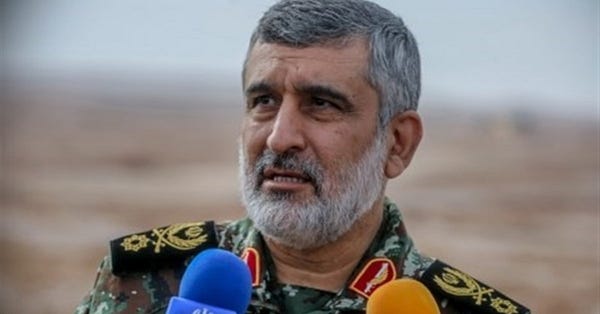
G20 Meeting
A meeting of finance ministers and central bank chiefs from the Group of Twenty (G20) leading economies in Bengaluru, India, will likely end today without a joint communique, because there was no consensus on how to describe the conflict in Ukraine, according to delegates.
Russia, which is a member of the G20, refers to its actions in Ukraine as a “special military operation”, and avoids calling it an invasion or war.
India has been reluctant to be caught between Ukraine’s western allies and Russia and other countries supporting Moscow, such as China. The Indian prime minister, Narendra Modi, kicking off the meetings on Friday, avoided mention of Ukraine.
India and China were also among the nations that abstained on a UN vote to call for Russia to immediately and unconditionally withdraw from Ukraine.
India is pressing the meeting to avoid using the word “war” in any communique, G20 officials have told Reuters. A senior source said negotiations over the communique were difficult, with Russia and China blocking proposals by western countries.

Gleb Golod, ‘We don’t have another motherland’- Meduza
Nine years into Russian occupation and oppression, Crimean Tatars hold out hope for Ukraine’s return
It’s been one year since Russia launched its full-scale war against Ukraine, but residents of Crimea have been living under Russian occupation for nearly a decade. And while Moscow’s oppressive policies and arbitrary arrests have affected people of all stripes, there’s no question that the peninsula’s Crimean Tatar population has been disproportionately targeted. Dozens of Crimean Tatars have been arrested on charges of “extremism,” while many more have been forced to leave the peninsula altogether. After Russia’s 2022 invasion of Ukraine, Moscow’s proxies in Crimea cracked down on local Tatars even harder; human rights advocates have compared the mobilization campaign there to genocide. Meduza explains how nine years of Russian occupation have affected the Crimean Tatar population, and how Moscow is forcing this group to fight a war against the country it considers its own.

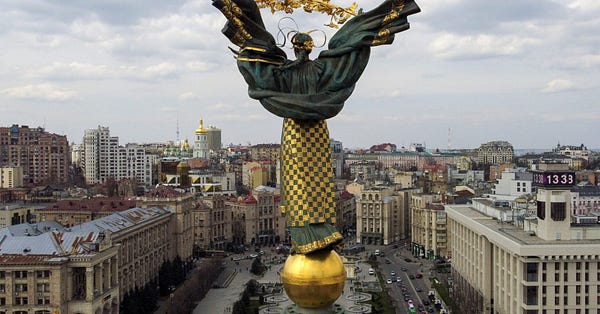
Michael Weiss, James Rushton, 5 key moments that have defined Russia's invasion of Ukraine- Yahoo News
Below are five events that telegraphed Russia’s manifold problems in tactics, techniques and procedures, not to mention the core competency and will of its invading troops, and foretold Ukraine’s capacity for beating the odds: The Battle of Kyiv, the sinking of the Moskva, the Kharkiv offensive, Russian mobilisation and its discontents, the annexation of ‘Ukraine’
The Battle of Kyiv
Russian failure to capture Kyiv was the first indication that things were not going Putin’s way.
The plan was relatively simple. Russian troops would punch through disorganized, unprepared and poorly motivated Ukrainian defenders, quickly secure Hostomel Airport on the outskirts of Kyiv with a daring airborne assault and use that as a springboard to take key points in the Ukrainian capital. Zelensky’s shell-shocked administration would either have to flee the city in terror or risk having its leadership captured.
Although the Russians were initially able to secure Hostomel Airport, a determined Ukrainian counterattack and the resultant battle meant the Russians weren’t able to use the runway to fly in reinforcements for their push into Kyiv. An unknown number of huge Russian IL-76 strategic airlifters, en route to Hostomel with paratrooper reinforcements, were forced to turn around and fly back to Russia.
With the arrival of armored reinforcements from their bases in Belarus, the Russians were eventually able to secure the airport on Feb. 25, but by then it was too late. The initial “shock” of the Russian invasion had subsided, and Ukrainian defenders quickly realized there was no need to be in awe of the modernized Russian army. Whatever its potential strengths on paper, it was unable to fight the war Moscow thought it could, against the enemy Moscow thought it was facing. Back in 2014, Putin boasted of the Russian army being capable of taking Kyiv in “two weeks.”

At the time, his assessment was probably correct. But the Ukrainian army of 2014 was a long, long way away from the Ukrainian army Russia faced in 2022, a far larger force and battle-hardened from years of fighting in the East; approximately 1 percent of Ukraine’s total population of 43.7 million had seen some form of combat against pro-Russian forces since 2014. Also, Ukraine’s military was increasingly led by more capable commanders, many trained by the United States and its NATO allies, who had wisely abandoned the top-down, centralized model of command and control inherited from the Soviet era.
In the end, the Russians barely even entered Ukraine’s capital. The troops were largely confined to the suburbs of the city — Bucha, Irpin, Borodyanka — where they took out their frustrations on civilians, targets that couldn’t fight back. When Russian troops were forced to withdraw under Ukrainian fire in April 2022, they left the evidence of their crimes behind them.

Andrii Borovyk: A year of war – how is Ukraine transforming right now?The Kyiv Independent
Although it is still too early to talk about the total losses and needs of Ukraine, we can see the first results of the resilience of the country's anti-corruption system. Over the past nine years, Ukrainians have shown how they can transform entire sectors and industries, but there is still a lot of work ahead, including in the crucial sphere of anti-corruption.
Let's look at the changes that have taken place during the year of the war.
Anti-corruption: relevant, despite missiles
The successful fight against corruption is one of the main requirements for full accession to the European Union.
This is logical because comprehensive integration into the European economic system requires fair rules of the game, including in the economy. This is impossible due to the high level of corruption in Ukraine.
Here, even during martial law, Ukraine has already taken many necessary steps to combat the problem of bribery systematically.
In 2019, Ukraine's anti-corruption infrastructure was finally formed. It consists of five central state bodies, each of which has its specialization:
National Agency on Corruption Prevention (NACP)
Asset Recovery and Management Agency (ARMA)
National Anti-Corruption Bureau of Ukraine (NABU)
Specialized Anti-Corruption Prosecutor's Office (SAPO)
High Anti-Corruption Court (HACC)
They have proven their resilience and continue to operate during the war. Corruption cases are being investigated, examined, and heard in court.
For example, over 33 verdicts were handed down for high-level corruption during the year of countering Russian aggression in Ukraine. In 2022, the NABU launched 456 investigations, served 186 people with suspicion notices, and sent 54 indictments to court, including nine MPs. This testifies to the well-coordinated work of the anti-corruption infrastructure and its focus on fighting internal enemies such as bribery and corruption schemes.
However, at the same time, the employees of the anti-corruption ecosystem have not forgotten about the fight against the external enemy – the aggressor state Russia.
In the first days of the war, some helped with information analysis, and some employees went to the front or helped the military. For example, the former acting head and now SAPO prosecutor, Maksym Hryshchuk, continues to fight in a grenade launcher unit with the Kyiv territorial defense brigade. NABU detectives help to clear the liberated territories of mines.
Ukraine's anti-corruption infrastructure has undergone many changes over the past year, including personnel shifts. For example, SAPO finally got a new head, Oleksandr Klymenko. In February, the HACC announced that it had elected its new leader, Vira Mykhailenko, who was positively recognized by civil society and experts.

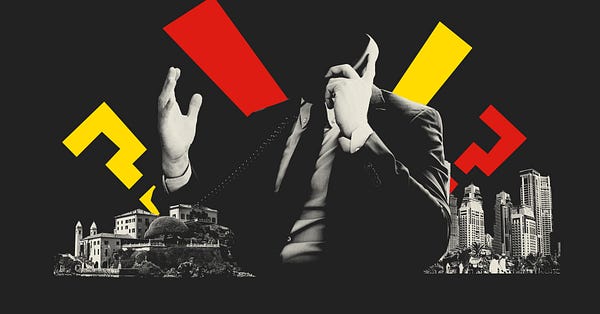
Francesco Verderami, Those strange rounds of money on the current accounts of the Russian embassy in Italy- Corriere
The Anti-Money Laundering spotlight on "suspicious" transactions on the three accounts of Russia's Roman diplomatic office
In a year of war, the Russian embassy in Italy became the protagonist of threats to parliamentarians, complaints to journalists, propaganda maneuvers. And also a strange round of cash. Since the day Vladimir Putin invaded Kiev, Moscow has tried to besiege Rome, believing it to be the "weakest link" on the Western Front. Since then the head of Russian diplomacy in Italy, Sergej Razov, he was noted for a series of provocative initiatives which led the Farnesina to summon him several times. At first he sent an intimidating letter to the parliamentarians who were about to vote on the first military aid to Ukraine. And since the presidents of the chambers of the time did not intervene in defense of deputies and senators, he believed he could continue undisturbed: he paid for plane tickets to political leaders who invented mediators; he called the former prime minister to explain to them that "it was all Volodymyr Zelensky 's fault "; he wedged himself into the folds of those parties who no longer wanted to send arms in the name of a rediscovered pacifism; he held a press conference in front of the Roman prosecutor's office after having presented a complaint against a newspaper article.
Last year the Italian Anti-Money Laundering Unit was alerted by certain movements on the three accounts of the Roman diplomatic office of the Russian Federation. One of the accounts operates in foreign currency, the other two in euros. And all together - coincidentally in conjunction with the outbreak of war - they triggered the alarm of the structure that operates at the Bank of Italy. There is a trace of it in the UIF documents, which show that the "reports" already began in the first half of 2022. In the second, if possible, they increased.
In short, in the last quarter of 2022 alone, the Moscow diplomatic office in Rome moved one million euros in cash. What all this liquidity was used for is not known, nor are any recipients known. It is certain that the use of so much money for "regular and daily activities" is excessive.
Programming Note…

